
Tenthredinidae is the largest family of sawflies, with well over 7,500 species worldwide, divided into 430 genera. Larvae are herbivores and typically feed on the foliage of trees and shrubs, with occasional exceptions that are leaf miners, stem borers, or gall makers. The larvae of externally feeding species resemble small caterpillars. As with all hymenopterans, common sawflies undergo complete metamorphosis.

Abia is a genus of sawflies in the family Cimbicidae. Abia is a genus of sawflies belonging to the family Cimbicidae, including several stout sawflies commonly encountered in Europe. Several species in the genus were formerly classified under the genus Zaraea, but this name is now treated as a synonym.

Nematinae is a subfamily of sawflies belonging to the family Tenthredinidae. It contains over 1250 described species in ~40 genera. Members of this subfamily feed on a wide range of plants and employ a wide range of feeding habits, both internally and externally, on their host plants.
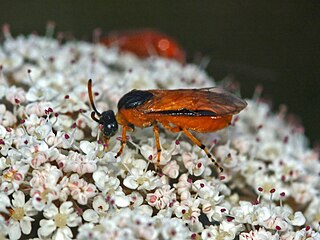
Arge is a genus of sawflies belonging to the family Argidae subfamily Arginae.

Megalodontes is a genus of sawflies within the Symphyta belonging to the family Megalodontesidae subfamily Megalodontesinae.

Pamphilius is a genus of leaf-rolling sawflies within the Symphyta belonging to the family Pamphiliidae.

Tenthredo is a genus of sawflies with more than 700 species of the family Tenthredinidae, subfamily Tenthredininae. It is of Holarctic distribution.
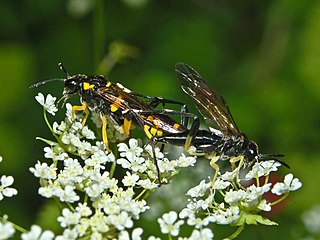
Macrophya is a genus of sawfly.

Rhogogaster is a genus of sawflies in the family Tenthredinidae.

Tenthredopsis is a genus of common sawflies belonging to the family Tenthredinidae subfamily Tenthrediniinae. These sawflies are present in most of Europe.

Allantus is a genus of sawflies of the family Tenthredinidae.
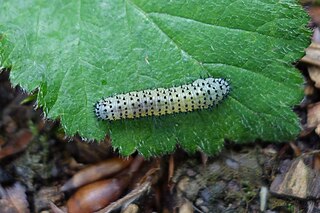
Periclista is a genus of common sawflies in the family Tenthredinidae. There are at least 20 described species in Periclista.

Ametastegia is a genus of common sawflies in the family Tenthredinidae. There are about 16 described species in Ametastegia.

Pachynematus is a genus of common sawflies in the family Tenthredinidae. There are at least fifty described species in Pachynematus.
Calameuta is a genus of insects belonging to the family Cephidae.
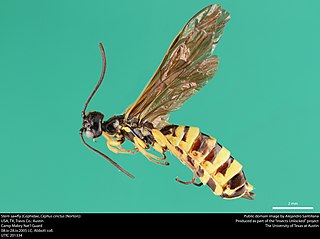
Cephus is a genus of sawflies belonging to the family Cephidae.
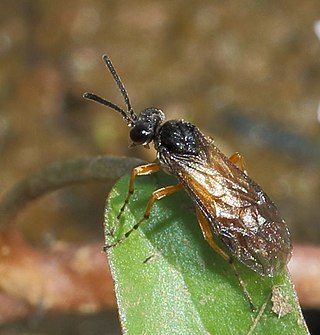
Athalia is a genus of sawflies belonging to the family Tenthredinidae. Species of the genus Athalia are found in Eurasia, Africa and North America.
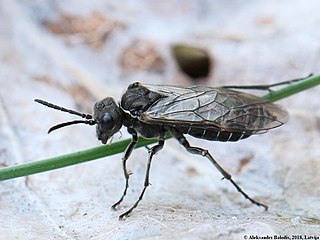
Sciapteryx is a genus of insects belonging to the family Tenthredinidae.

















